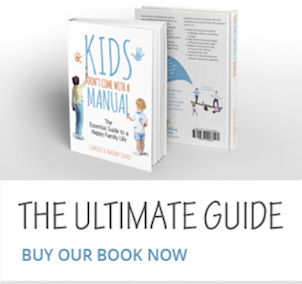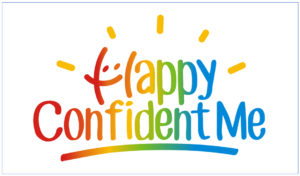Lots of children go through phases where they seem to dislike or start struggling with one of their subjects at school or an activity. This is a very common problem and one that many parents find themselves worrying about. The difficulty is knowing whether or not we should try to intervene, and particularly how we can improve things.
We found ourselves in this situation with our daughter, Noor. She had been struggling with her reading over the last school year, and slowly but surely started to ‘fall behind’. We knew that she was struggling, but didn’t worry about it too much as we recognised that all children develop at different rates, and we trusted in the education system to support her and encourage her in the areas in which she was having difficulty. We also recognised that there are countries where they delay reading until a later age, so perhaps she simply wasn’t ‘ready’.
We also felt that if we swooped in and tried to fix the problem, we’d blow the situation out of all proportion and probably make Noor dislike reading even more. The last thing we wanted was for her to carry her dislike of reading into adulthood. We were stuck in quite a tricky situation, feeling unsure as to what was the right thing to do. The problem was that her reluctance to read was getting worse. Not only was she struggling with the basics, but she also became really anxious when doing it and even when talking about it, especially when sitting down to read with me (Nadim). Neither of us could really understand what was making her so anxious and over the next few months, despite our best efforts to encourage her, the problem snowballed until it actually prevented her from getting into the school we had wanted.
This was our ‘wake-up call’, as it was clear by now that the problem wasn’t going to rectify itself and it wasn’t just a phase that Noor was going through. In fact, it was getting worse so now was the time for us to act.
We sat down and talked about how we had dealt with the situation thus far, and we soon realised that we hadn’t allowed Noor to develop a ‘Growth Mindset’ about reading. Although we’d encouraged her to practice her reading and made time to read with her, Carole hadn’t really been consistent enough for Noor to make some steady progress, which is essential in her feeling more confident and developing more competence. We also thought about what could be making Noor so anxious when reading with me, and realised that up to now, my impatience for her to improve had made poor Noor afraid to read with me in case she made mistakes. In order for Noor to feel more comfortable reading with me, I first had to make her feel better about herself and make her feel that mistakes are ok. I had to lower my expectations and make an effort to be more patient and empathetic with her struggle.
We decided that the best way to approach the situation was to sit down with Noor and involve her in the process of creating a reading programme that we would implement over the summer holidays. Involving her in this way was a great way of encouraging her to open up and share some of the problems she had been experiencing. Plus, we knew that if she had a say in creating the schedule, she’d be far more likely to stick to it. By taking the time to listen to Noor (using our Active Listening tool), we soon discovered that she was feeling frustrated at the fact that she wasn’t able to keep up with kids her own age. We also learned that her teacher had made her afraid of reading and making mistakes because she had sometimes shown some frustration at Noor’s slow pace (as I/Nadim had also done at home).
So over the summer holidays, we implemented this strategy. It didn’t all go smoothly – there were quite a few power struggles along the way! However, with me making a conscious effort to be more patient, empathetic and flexible, and Carole striving to be more consistent in encouraging Noor to practice, we were determined that we were going to solve the problem together as a family.
In order to encourage a growth mindset in our children – as opposed to a fixed mindset where they become afraid of challenges and failure, we must first recognise that intelligence and abilities are not innate, they can in fact be taught and developed. So we must endeavor to show our children that the most important aspect of any challenge is the effort and practice you put in, as this leads to us being able to achieve anything. In Noor’s case, with our help and encouragement, which focused on the effort and progress she was making, she soon realised that the more she practiced her reading, the better she got. This growth mindset didn’t happen overnight, it took sustained effort, but I’m happy to say that for us, the results couldn’t have been any better!
The Sunday before starting school, we sat down for a family meeting and – as we do at the beginning of each of these meetings – we shared gratitude and compliments with one another. Noor amazed us by coming up with a new initiative – she asked “Can I be grateful for myself?” “Do you mean that you want to share something that you’re proud of?” we asked. “Yes! I am proud that I have finished ‘Charlie and the Chocolate Factory’ and that I am reading much better now, and I am enjoying it more!” she nodded excitedly. Carole and I were absolutely beaming! We thought that her idea of sharing what she is proud of during a family meeting was great and we now implement this – we ask each and every member of the family what they have down that makes them feel proud this week. We’re even happier to say that Noor has overcome her anxiousness and now enjoys reading a whole lot more.
Update 1: Since writing this post, we discovered that Noor actually has a problem with her eyes that prevents her from reading ‘normally’! We had seen optometrists to check her eyes in the past as we wondered if her difficulty in reading might be due to this. She had passed all tests successfully, but this is a condition that can only be identified by specialised optometrists. Luckily, we were able to speak to a friend whose child had experienced the same thing and this led us to get Noor a referral to see an eye specialist. Noor is now doing daily exercises to correct this eye problem and is wearing glasses to read, which is making her progress faster. And so the moral of this story becomes even clearer; we need to focus on building a growth mindset in our children, and this cannot be developed by us simply having high expectations of them. By showing them that their struggles and mistakes are completely ‘normal’ and being truly accepting of them, while at the same time praising their effort, progress and persistence, we encourage them to take on new challenges and make them unafraid to make mistakes. Conversely, if our children become afraid of making mistakes because they see our frustration when they are not learning as fast as we’d expect them to, then we can run the risk of completely demotivating them and causing them to develop a ‘fixed’ mindset.
Update 2: After 3 months of eye exercises, where Noor made some slow progress in her reading, there was a sudden acceleration of her reading pace. We are proud to say that she now has a ‘normal’ reading speed for her age. The persistence and efforts were well worth it!














































I have exactly the same situation at home with my 7 yr old son, He just doesn’t want to read, even if he tries to read he is least bothered to find out the meaning of the words that he doesn’t understand, unless I am over his head watching and question him. Initially I felt he had eye problem and when showed to the doc, the results came all clear. After reading this Article I am wondering if he could be having the same eye problem mentioned, Can you suggest what exactly is the specialist I should be searching for? I stay in Bangalore India, in case you have any pointers.
Thank you for your question and we’re happy that this article has helped. The eye specialist is an Orthoptist or a Behavioural Optometrist, depending on the country you are in. Just so you are also aware, even though the issue may be specific to the eyes and not to other parts of the brain, these reading difficulties still come under the umbrella of Dyslexia so you may also want to see specialists in Dyslexia if they are available in Bangalore. Good luck!